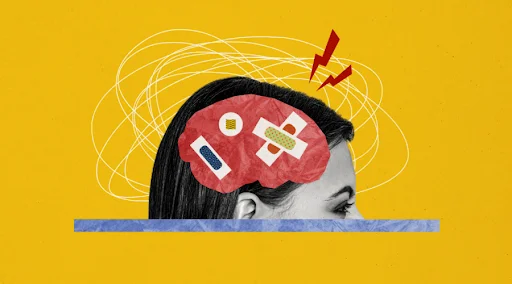What is Inpatient Trauma Treatment All About?
Trauma affects every part of a person’s life. Whether it’s one event or repeated exposure to distressing situations, trauma leaves individuals struggling with anxiety, depression, substance use, and overwhelming emotional pain. For many, outpatient therapy is not enough.
Inpatient trauma treatment provides a safe environment where individuals can address their trauma with professional support and care through intensive treatment programs. If you or someone you love is looking for inpatient trauma treatment in Arizona, understanding what to expect will help you get started on the road to recovery.
Our resource from 2A Magazine breaks down all you need to know when looking to get help for a loved one in the Grand Canyon State.
Why Inpatient Trauma Treatment
Inpatient trauma treatment offers a level of care and intensity that outpatient treatment can’t match. A strong support system is key in aftercare for individuals struggling with trauma, helping them continue their healing journey after leaving residential treatment.
At an inpatient trauma recovery program, clients get 24/7 support from a team of mental health professionals. This allows individuals to focus on their recovery without the distractions and triggers of daily life. It also provides a structured environment with evidence-based therapies to address trauma at its root.
Benefits of Inpatient Trauma Treatment
For individuals struggling with post-traumatic stress disorder (PTSD), inpatient trauma treatment offers several benefits, including:
- 24/7 Supervision and Support
- Access to Specialized Trauma Therapies
- Structured Daily Schedules to Promote Stability
- Safe and Supportive Environment
- Peer Support and Group Therapy Opportunities
- Integrated Treatment for Co-Occurring Disorders
- Continuing Care to Ensure Ongoing Support After Treatment
Inpatient programs are best for those with severe PTSD, complex trauma, or who have not found success with outpatient treatment alone.
What to Expect from Inpatient Trauma Treatment in Arizona
When seeking inpatient PTSD treatment in Arizona, it can help to know what you should expect ahead of time. Inpatient trauma treatment generally includes:
Comprehensive Assessment and Personalized Treatment Plans
Upon admission, individuals are assessed to understand their history, symptoms, and goals. This assessment informs a personalized treatment plan to address the specific emotional trauma and any co-occurring mental health or substance use disorders.
Evidence-Based Therapies for Trauma Recovery
Top inpatient trauma treatment centers in Arizona offer a range of evidence-based therapies including:
- Cognitive Behavioral Therapy (CBT) – Helps reframe negative thought patterns associated with traumatic experiences.
- Dialectical Behavior Therapy (DBT) – Teaches skills for emotional regulation and distress tolerance.
- Eye Movement Desensitization and Reprocessing (EMDR) – A therapy for processing memories of traumatic events.
- Prolonged Exposure Therapy – Helps clients safely confront trauma-related memories and situations.
- Trauma-Focused Cognitive Behavioral Therapy (TF-CBT) – For individuals who experienced trauma in childhood.
- Group Therapy – A space for shared healing and connection.
These therapies give individuals new tools to navigate recovery, focusing on personal growth and empowerment.
Holistic and Experiential Approaches
Many Arizona trauma treatment centers, such as the accredited programs offered at Purpose Healing Center, also offer therapeutic activities and holistic therapies to promote overall well-being. These may include yoga, mindfulness meditation, art therapy, equine-assisted therapy, and physical fitness activities. Addressing the mind, body, and spirit creates a comprehensive healing experience for long-term recovery.
Trauma Informed Care Philosophy
Trauma informed care is the foundation of quality inpatient trauma treatment, providing a safe space for healing and personal transformation. This means every aspect of care is designed with an understanding of how trauma affects individuals. Staff are trained to prioritize safety, trust, choice, collaboration and empowerment throughout the treatment process.
Levels of Care for Trauma Treatment
When receiving treatment for unresolved trauma, there are several levels of care that are available to help you back on the path to a happier, more fulfilling life:
Residential Treatment (RTC)
Residential trauma treatment offers the highest level of care with 24/7 supervision and a fully immersive therapeutic environment. Clients live on-site at the treatment facility and engage in a full schedule of individual therapy, group sessions, and experiential activities. For those who need more flexibility and accessibility, intensive outpatient programs offer comprehensive treatment options with personalized support and various therapeutic modalities.
Partial Hospitalization Program (PHP)
For those who are ready for a step-down level of care, outpatient programs such as PHP provide structured treatment during the day and clients return to supportive housing or home in the evenings.
Intensive Outpatient Program (IOP)
IOP offers more flexibility with therapy sessions several times a week. This level of care is often used as a transition from inpatient or PHP treatment, helping clients maintain progress while reintegrating into daily life. These programs are designed to support individuals in achieving long-term recovery.
Who Needs Inpatient Trauma Treatment
Inpatient trauma treatment is best for those who:
- Have severe PTSD symptoms that interfere with daily living
- Have a history of multiple traumas or complex trauma* Have co-occurring mental health disorders such as depression, anxiety, or substance use.
- Can’t maintain safety or stability in outpatient settings
- Need intensive focused support to start the healing process.
It’s also important for the long-term effects of trauma, to provide practical tools and guidance to help participants manage these lasting impacts and regain their emotional well-being.
If you are wondering if inpatient trauma treatment is for you, this may be a good idea if you are regularly experiencing the following symptoms:
- Flashbacks or nightmares
- Avoidance of people, places, or situations that trigger traumatic memories
- Intense emotional distress or numbness
- Self-harming behaviors or thoughts of suicide
- Substance use as a coping mechanism
- Difficulty with relationships or employment due to trauma symptoms
How to Choose the Right Inpatient Trauma Treatment Center in Arizona
Licensed and Accredited Programs
When choosing a treatment provider make sure the facility is licensed by the state of Arizona and accredited by organizations such as The Joint Commission or CARF. Accreditation means the program meets high standards for safety and quality of care.
Trauma Specific Expertise
Look for centers that specialize in trauma treatment and prioritize personalized care not just offer it as an afterthought. Facilities with trauma-certified clinicians and experience treating complex trauma can provide the specialized support needed for healing.
Integrated Treatment for Co-Occurring Disorders
Many individuals with trauma also have conditions like depression, anxiety, substance abuse, substance use, or eating disorders. An integrated treatment program addresses all these concerns at the same time for better outcomes.
Therapeutic Modalities and Holistic Services
Ask about the range of therapies offered, including integrative therapies, evidence based approaches and holistic services. A diverse treatment menu allows for a more personalized and comprehensive healing experience.
Family Involvement and Aftercare Planning
Family members can play a big role in trauma recovery. The best inpatient centers offer family therapy or education and work with clients to develop thorough aftercare plans to support continued progress after discharge.
Why Arizona is the Perfect Place for Trauma Recovery
Arizona has the right combination of skilled treatment professionals and a healing environment. The state’s beautiful landscapes, warm climate, and peaceful settings can provide a soothing backdrop for the hard work of trauma recovery.
Many treatment centers in Arizona, with Purpose Healing Center offering locations in Scottsdale and Phoenix being a prime example, incorporate outdoor and experiential therapies that utilize the restorative power of nature. This supportive environment is ideal for starting the healing journey, personal transformation, and recovery.
If you or a loved one is looking for inpatient trauma treatment in Arizona, help is here. Treatment centers across the state provide a safe and supportive place to process trauma, learn new coping skills, and get your life back.
We hope this guide from 2A Magazine has shown the path to getting your loved one fitting help, and keep our site bookmarked for the latest in news and insights that matter for you and yours!







